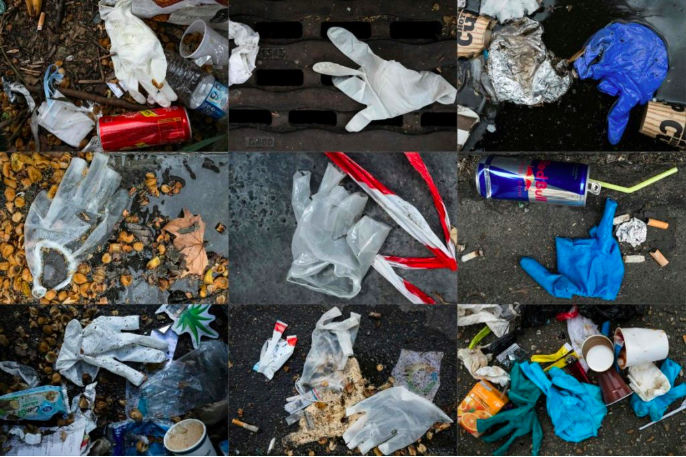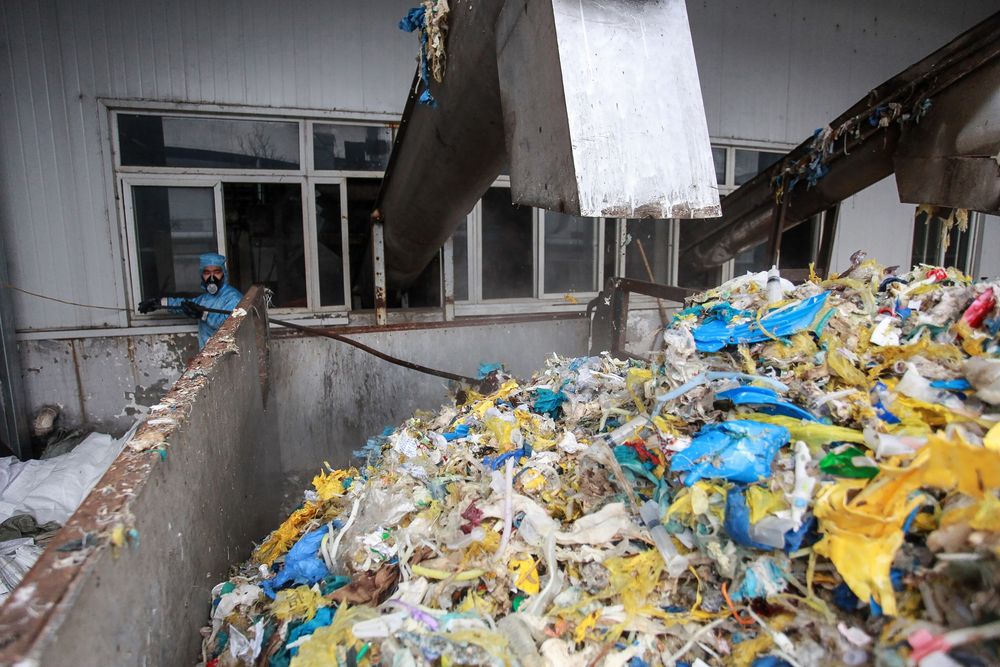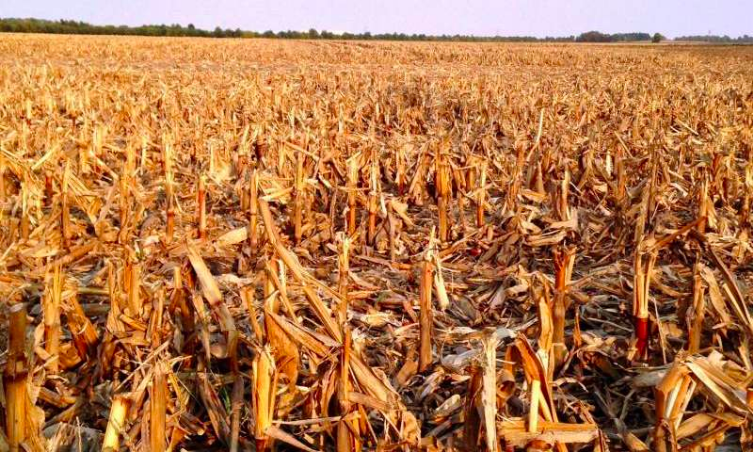Coronavirus and corn. How on earth would anyone make a connection between the two entities? Well, it is a lot easier than you thought. But how? One is a product that dominates the country’s supermarkets and American’s consumption on the daily. The other : a deadly disease that has swept through the world and put everything on pause. At first glance, the two have almost no correlation to one another. But if they are anything like each other, we are in for a world of hurt.
Background
In Chapter 1 of Pollan’s The Omnivore’s Dilemma, he writes ” Indeed, there is every reason to believe that corn has domesticated us”. Corn is the backbone of American consumerism and it always has been. If you walk through the grocery store, every aisle you pass by will have an item that, in some way, comes from the American crop. Pioneered in the early stages of American history, corn shaped the country and was the main reason the United States became the superpower it is today. It set the standard of everyday life for generations, but how does one connect this super crop to the current world pandemic?
To answer that question, what was the first thing you thought of when you woke up this morning? Getting dressed to go to work? What to make for dinner today? What television show is on the primetime CBS lineup tonight? Probably not. Most of us thought of coronavirus. It seems this is the only topic that is broadcasted through every household for the past two months. Whether we feel the lockdown restrictions are too heavy or we’re worried for our families’ health and safety, we all are talking about coronavirus all day long. It seems to be domesticating us, right? Similarly to the crop that dominates the American supermarkets. We consume corn everyday, and it seems that coronavirus is “consuming” us.
Where is the Connection?
No one could ever imagine that a dominating crop and a world-wide pandemic are corresponding with one another. But their overwhelming domestication has proven there is a similar understanding between the two. When the domestication of corn over the food industry began, humans thrived on the opportunity to produce a new crop that would overwhelm the market and make life easier. A few hundred years into the future, we see a swift change in production. Living in a new, modern world where we accomplish daily goals at the swipe of a finger, corn production is also changing. Production has moved to a more industrial form of farming. We need to use the super crop so much that it seems easier to produce in a factory. Flashback a few years ago to when Lake Erie grew a toxic algae and forced the shutdown of all surrounding neighborhood watersheds. What was the main cause? Excess nitrogen in the waterways caused by industrial farming of corn.
But still the question remains : How does the domestication of corn relate to COVID-19? Well, let’s start at the beginning. In mid March 2020, many people learned we would be put into quarantine to stop the spread of coronavirus. Many felt optimistic that this would give them a chance to spend a few weeks with their families and regain the time with their loved ones. In fact, people felt an optimistic bias that they would not be susceptible to the disease at all and many went about their everyday lives. A few weeks after this, people began to feel more scared that the virus would hit their homes as the numbers began to increase at substantial rates. People began lysol-wiping every inch of their homes, shopping carts, and anything that could have the virus attached to it. But what happens to all of these wipes? From firsthand experience, bracing the rush of worrisome people into the grocery store, I’ll tell you most of those wipes are all over the parking lot, since there is no place to dispose of it properly. And what about the bags to carry your produce? The single serve plastic bags were not necessary before the pandemic and most times, you can get by without needing it at all. Now, each product is bagged to prevent the spread. But what happens to those “hard-to-recycle” bags? Everyone is concerned with the virus that we as a world have changed back from reusable items with single-serve carriers.

In an article written by Simon Mair, How Will Coronavirus Change the World, he touches on how the world might change once we get to our “new normal”. One topic that many people may overlook is product sustainability. Over the past few decades, the push for environmentally conscious decision making has swept through the world. However, this has been put on pause. People are back to using single-use plastic containers and bags, antibacterial wipes, etc., which are all things that contribute to pollution in our world. Following this pandemic, we’ll be back to the “new normal”, where all these things may still remain. We could go back to using plastic bags at the grocery store or no more reusable cups at coffee shops. Coronavirus has domesticated the world, similarly to corn. One can’t help but think that the environmentally friendly ideas that people were adopting will go out the window in order to remain safe from diseases in the future. Less people will be willing to carpool, causing more pollution from fossil fuels. The single use wipes will remain in grocery stores that will later litter the parking lots. Coronavirus has not only changed the thoughts of us humans, but could have a detrimental effect on the environment. The only difference between corn and coronavirus effects on the environment is that the waste production from COVID-19 is happening at a faster rate than the crop did.
Clearly the correlation between corn and coronavirus is domestication and the production of waste materials. These two entities are big factors in the society that will have their own effects on everyone. Whether we allow our “new normal” to dominate or not, people will always look back at this time with their own reflection. Perhaps coronavirus will be even more domesticating than the good ole American delicacy. We head into the future with no way of knowing, but only we can make the difference.
What Can We Do?
There’s no way of knowing what the future will hold, especially in the case of COVID-19. Hospitalizations, death rate, etc. continue to fluctuate drastically with each coming day. We need to be smart in order to maintain the great progress we have made to keep our environment clean. But we also need to be aware of the pending problem facing every single person on the planet. It’s okay to use wipes to disinfect and it’s fine to use cleaning supplies to keep yourself safe. However, we need to be smart about what we’re doing with it. Properly disposing of our waste is the way to not only save the planet, but save ourselves. If you use a plastic bag at the grocery store, get rid of it correctly, not blatantly disregarding it. It’s fine to be fearful, as many of us are, but it is not okay to act in fear and forget the earth we live on. If we don’t, we might have a longer problem than we anticipated.
Alex Hokaj is a senior Political Science major and French minor at SUNY Geneseo.
SOURCES
Pollan, Michael “Chapter 1 : The Plant .” The Omnivore’s Dilemma: A Natural History of Four Meals, Penguin Press, New York 2006.
Mair , Simon. “How Will Coronavirus Change the World?” BBC Future, BBC, 31 Mar. 2020, www.bbc.com/future/article/20200331-covid-19-how-will-the-coronavirus-change-the-world
Daley, Beth, 6 April 2015, “Industrial corn farming is ruining our health and polluting our watersheds”, The Conversation, https://theconversation.com/industrial-corn-farming-is-ruining-our-health-and-polluting-our-watersheds-39721
Schaart, Eline and Wanat, Zosia, 14 April 2020, “Coronavirus risks a return of the throwaway culture”, Politico, https://www.politico.eu/article/coronavirus-risks-shift-back-to-throw-away-culture/
Bomey, Nathan, 8 April 2020, “Plastic bag bans reversed: States, cities, and stores are suddenly banning reusable bags during coronavirus” USA Today, https://www.usatoday.com/story/money/2020/04/08/plastic-bag-bans-reversed-coronavirus-reusable-bags-covid-19/2967950001/
LaMonica, Martin, 25 March 2020, “In battling the coronavirus, will ‘optimistic bias’ be our undoing ?” The Conversation, https://theconversation.com/in-battling-the-coronavirus-will-optimistic-bias-be-our-undoing-134476
Image credit Robinson, Keith, https://phys.org/news/2015-11-potential-growth-biofuels-corn-stover.html


